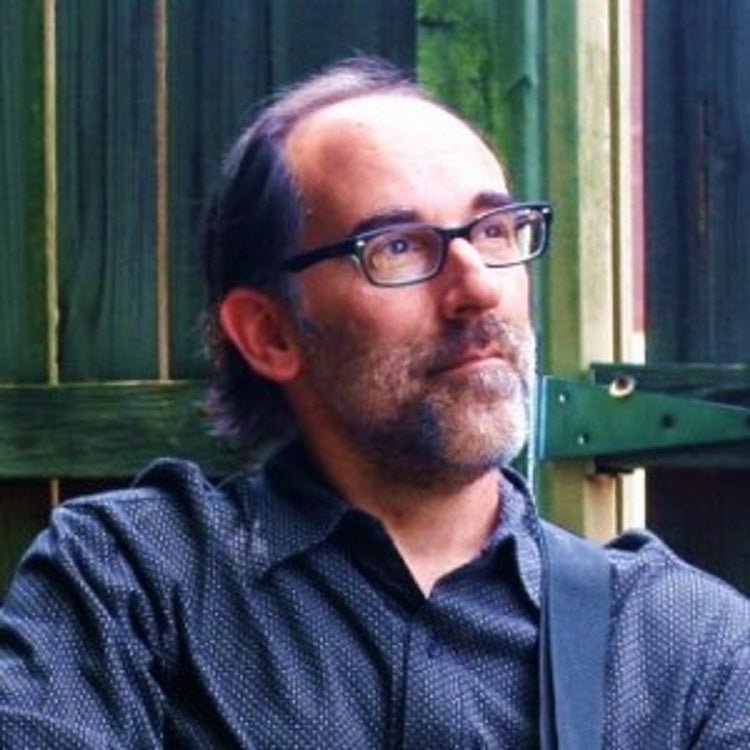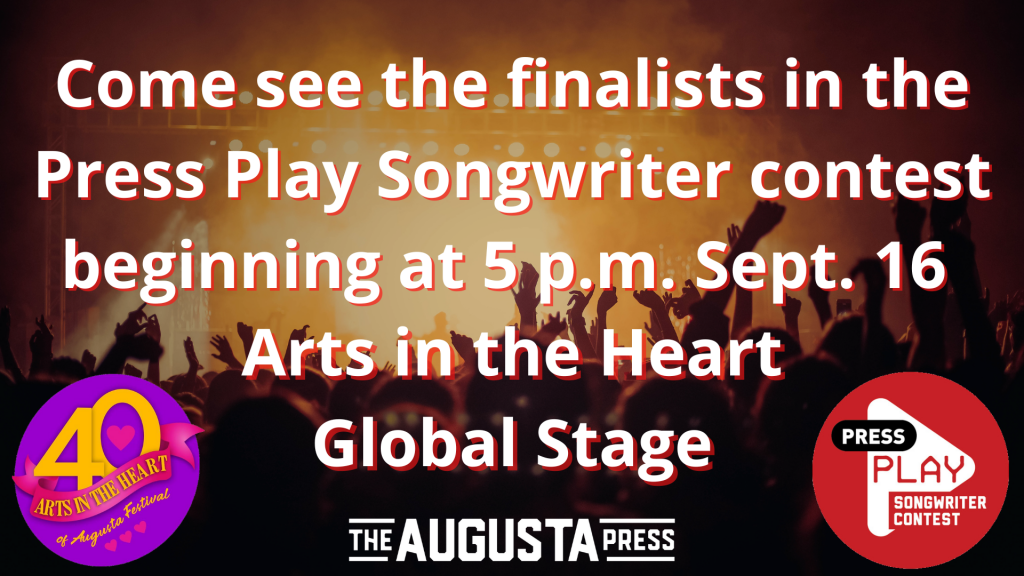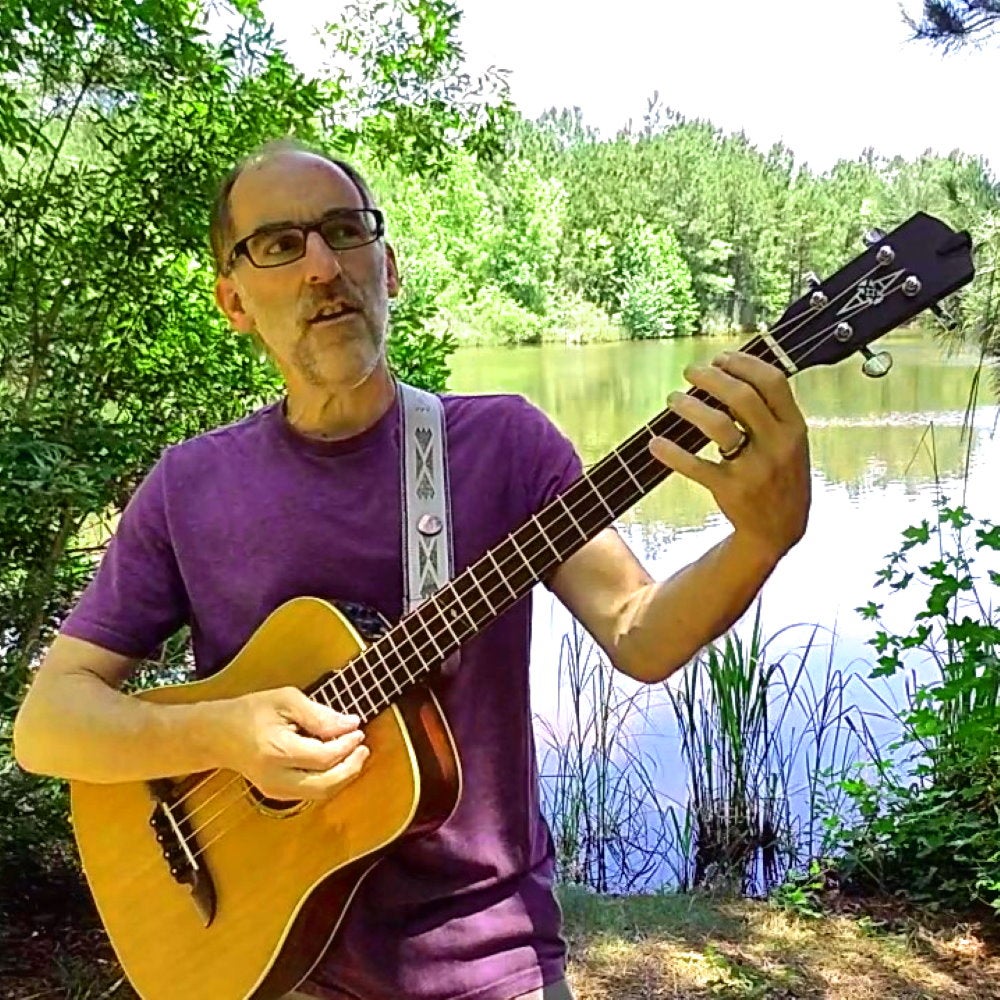(Editor’s note: Meet one of the six finalists of the Press Play Songwriter Contest. All six will perform Sept. 16 on the global stage of Arts in the Heart of Augusta)
Not many people can say Dr. Demento changed their life, but the radio host and his programming did make a profound impact on a teenage Chris Hardy.
“Throughout my high school years on Sunday nights, I’d listen to Dr. Demento with my tape recorder nearby. That’s where I first heard Robyn Hitchcock,” said Hardy, who is one of the finalists in this year’s inaugural Press Play Songwriter Competition. He will join five other artists on the global stage Sept. 16 at Arts in the Heart of Augusta to vie for the win.
Robyn Hitchcock is an English composer who has created more than 30 albums in his career. His website summing him up as having “traversed myriad genres with humor, intelligence, and originality.”
That brand of originality struck a chord in a teen-age Hardy.
“He was never a household name, but he showed me that if I wanted to write a song about a toaster, I could write a song about a toaster,” Hardy said.
And he did write a song about a toaster and cutlery and feeding his chickens and eating cake to name a few of the subjects he’s written about.
Songwriting has helped Hardy process various parts of his life, but he does it in a way that people think he’s referencing one thing when he’s actually referring to something else.
Most people think his song about feeding chickens is about a relationship.
As an introvert, Hardy said he is private about his life, but it spills out into his songs hidden among the lyrics that appear to be one thing on the surface.
“I could write about a sandwich bag and make it sound like I’m writing about my soul,” he said.
But on stage while people think he’s baring his soul, he knows he’s just singing about a sandwich bag.
If he were to pigeonhole a specific genre, Hardy would classify his music as rock; some have compared him to R.E.M.

“I like R.E.M., but I’m like if Beck joined R.E.M. — Bizarro R.E.M.” he said.
His most recent project that came out in August features the bossa nova.
Others, well, they have called him weird. Hardy said he heard a recent podcast with a local band. One of the members couldn’t remember his name but called him the “weird” one. The podcaster filled in Hardy’s name, and the musician said that was the one.
And Hardy doesn’t mind not being mainstream. Thanks again Dr. Demento.
He taught himself to play the drums as a teen and later took up guitar and bass. He spent six years in the Army as a drummer in the band.
He’s recorded 18 albums in the past decade, and he has his own following. He often plays gigs in Augusta and Aiken. He’s lived in Edgefield for the past five years, and on Sept. 17, he plays his first show practically in his backyard at Christine’s Farm to Fork.
He’s also playing bass on a project with a musician who lives in the United Kingdom.
Hardy said the artist sends him a song at the time and he records his bass line before sending it back.
Besides making music, he repairs woodwind and brass instruments — instruments he doesn’t know how to play. He fell into that work. In the 1990s while working for World of Music answering phones and doing customer service — a job that an introvert like Hardy didn’t enjoy — Hardy got another assignment.

One day, he was sent to another site to work with another employee to be an apprentice repairing instruments. At first, he was reluctant to go because Dan the instrument repairman “only listened to classical music,” Hardy said.
He quickly changed his mind. A day of after working in the different space, one thing stood out to Hardy — the phone only rang once during the day.
When he asked if that was unusual for the phone not to ring, he learned the phone only rang several times during the week as opposed to all day at his other position. Hardy decided that listening to classical music was a small price to pay in return for the quiet.
The song Hardy entered into the Press Play Songwriter Contest is called “Good Time for a Bad Idea,” which he wrote in the first few weeks of 2020 prior to the start of the pandemic. “A small percentage of my songs come from a phrase that materializes in my head as a title,” he said. “That was one of those times.”
Charmain Z. Brackett is the managing editor of The Augusta Press. Reach her at charmain@theaugustapress.com












